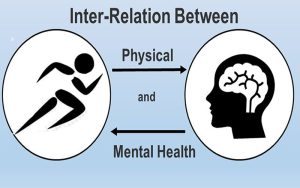
The Autoimmune Protocol (AIP) Diet is a therapeutic approach designed to reduce inflammation and support the healing of autoimmune conditions. It is a stricter version of the paleo diet, focusing on nutrient-dense foods and eliminating potential triggers that may worsen autoimmune symptoms.
What is Autoimmune Disease?
Autoimmune diseases occur when the body’s immune system mistakenly attacks its own healthy cells, tissues, and organs. Common autoimmune conditions include rheumatoid arthritis, lupus, celiac disease, and multiple sclerosis. These conditions can cause chronic inflammation, pain, fatigue, and other debilitating symptoms.
The Basics of the AIP Diet
The AIP Diet aims to reduce inflammation, heal the gut, and provide optimal nutrition to the body. It eliminates foods that are known to trigger or worsen autoimmune conditions, including grains, legumes, dairy, processed sugars, alcohol, nightshade vegetables, eggs, nuts, and seeds.
Allowed Foods on the AIP Diet
The AIP Diet encourages consumption of nutrient-dense foods that promote healing and support a healthy immune system. These include:
Quality meats such as grass-fed beef, pasture-raised poultry, and wild-caught fish
Fruits and vegetables (except for nightshades)
Healthy fats like avocado, olive oil, and coconut oil
Bone broth to support gut health
Probiotic-rich foods like sauerkraut and coconut yogurt
The Elimination Phase
During the initial phase of the AIP Diet, known as the elimination phase, all potentially inflammatory foods are completely removed from the diet. This phase typically lasts for at least 30 days and allows the body to reset, reduce inflammation, and identify potential trigger foods.
Reintroduction Phase
After the elimination phase, the reintroduction phase begins. This phase involves gradually reintroducing eliminated foods one at a time to identify potential triggers. It is important to carefully monitor any reactions or symptoms that may occur during this phase.
Tips for Success
Successfully following the AIP Diet requires preparation and commitment. Here are some tips to help you succeed:
Plan your meals and make a grocery list to ensure you have AIP-friendly foods on hand.
Batch cook and meal prep to save time and have convenient meals throughout the week.
Focus on variety to ensure you obtain a wide range of nutrients.
Seek support from friends, family, or online communities to stay motivated and share experiences.
Practice self-care and stress management techniques, as stress can impact autoimmune symptoms.
Potential Benefits of the AIP Diet
The AIP Diet has been reported to provide numerous benefits, including:
Reduced inflammation
Improved digestive health
Increase in energy levels
Enhanced nutrient absorption
Relief from autoimmune symptoms
Conclusion
The Autoimmune Protocol (AIP) Diet is a powerful tool for individuals with autoimmune conditions who are looking to reduce inflammation, support their immune system, and improve overall health. However, it is essential to consult with a healthcare professional or a registered dietitian before starting the AIP Diet to ensure it is appropriate for your specific needs and medical conditions.

